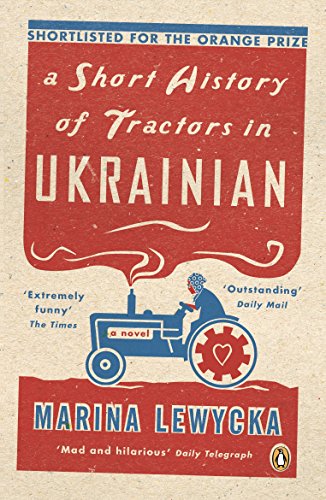


Ruth Lass’ Nadezdha, on the hand, wrestling with real-life problems, is earnestly convincing and Hilary Tones, all elegant self-indulgence at the start, effectively deepens her performance as Vera as the evening progresses. In the novel, Valentina is dangerously close to a grotesque, her character defined by greed and enormous breasts, and the adaptation does nothing to dissipate that, though Ana Marija Spasjovic, in her first major stage role, is nothing if not striking. The same feeling occurs when Gupta, well aware that the recent history of Ukraine gives Valentina even more reason to escape than she had in 2005, shoehorns in an explanation of the political problems there, improbably delivered to two Ukrainians.īabych’s production makes great play with cartoon features, notably characters bobbing up out of chests and suitcases, and the question is always how seriously to take the production. The story of the wartime sufferings of Nikolai, Ludmilla and elder daughter Vera is powerfully told, but ultimately seems in the wrong play – this isn’t a short history of Ukraine. Ludmilla shows us life in Ukraine for her and Nikolai and the previous generation, so a long evening can kick off buoyantly with the dancing at her parents’ wedding. Gupta switches to Nikolai’s dead wife, Ludmilla, and in some ways, it proves an inspired idea. Narration in the novel is by Nadezdha, the younger daughter.

Valentina subjects Nikolai to physical and emotional abuse, his feelings for her range from hatred and terror to his default position of total infatuation, and much of the fun of the book – for it is fun, despite some of the horrors suffered by poor Nikolai – derives from the shocked reactions of his daughters, previously not on speaking terms, and their attempts to remove Valentina. Lewycka’s novel, a major success in 2005, revolves around the unlikely marriage of convenience (or, at times, inconvenience) between octogenarian widower Nikolai, Ukrainian, but a long-time British citizen, and Ukrainian gold-digger, Valentina, apparently divorced, seeking legality for her entry into the United Kingdom, a high-class education for her son and anything else she can get money for. Given the challenge of creating a play from a sizeable novel with a shifting plot, Gupta ingeniously crams a lot in maybe she crams too much in. Mark Babych directs an imaginatively quirky production with a sure touch and the ensemble of eight capably switches mood and character. Even before the start, Patrick Connellan’s set whets the appetite for the play to come, with The Heron’s large open stage filled with a mighty tree, scattered furniture, a scruffy kitchen and piles of luggage. The world premiere of Tanika Gupta’s adaptation of Marina Lewycka’s novel, A Short History of Tractors in Ukrainian, has much to recommend it.


 0 kommentar(er)
0 kommentar(er)
